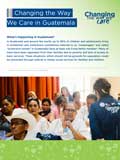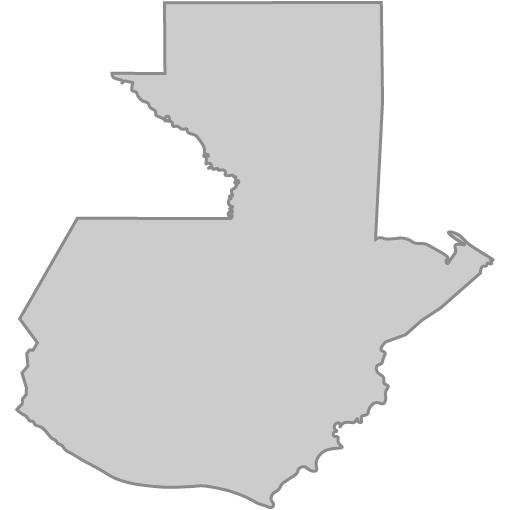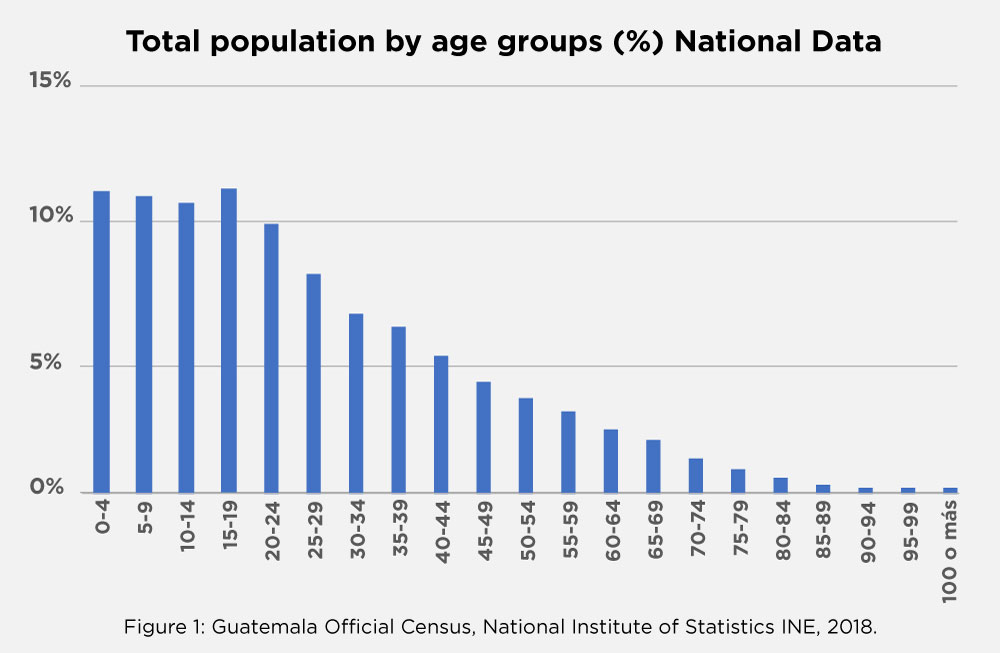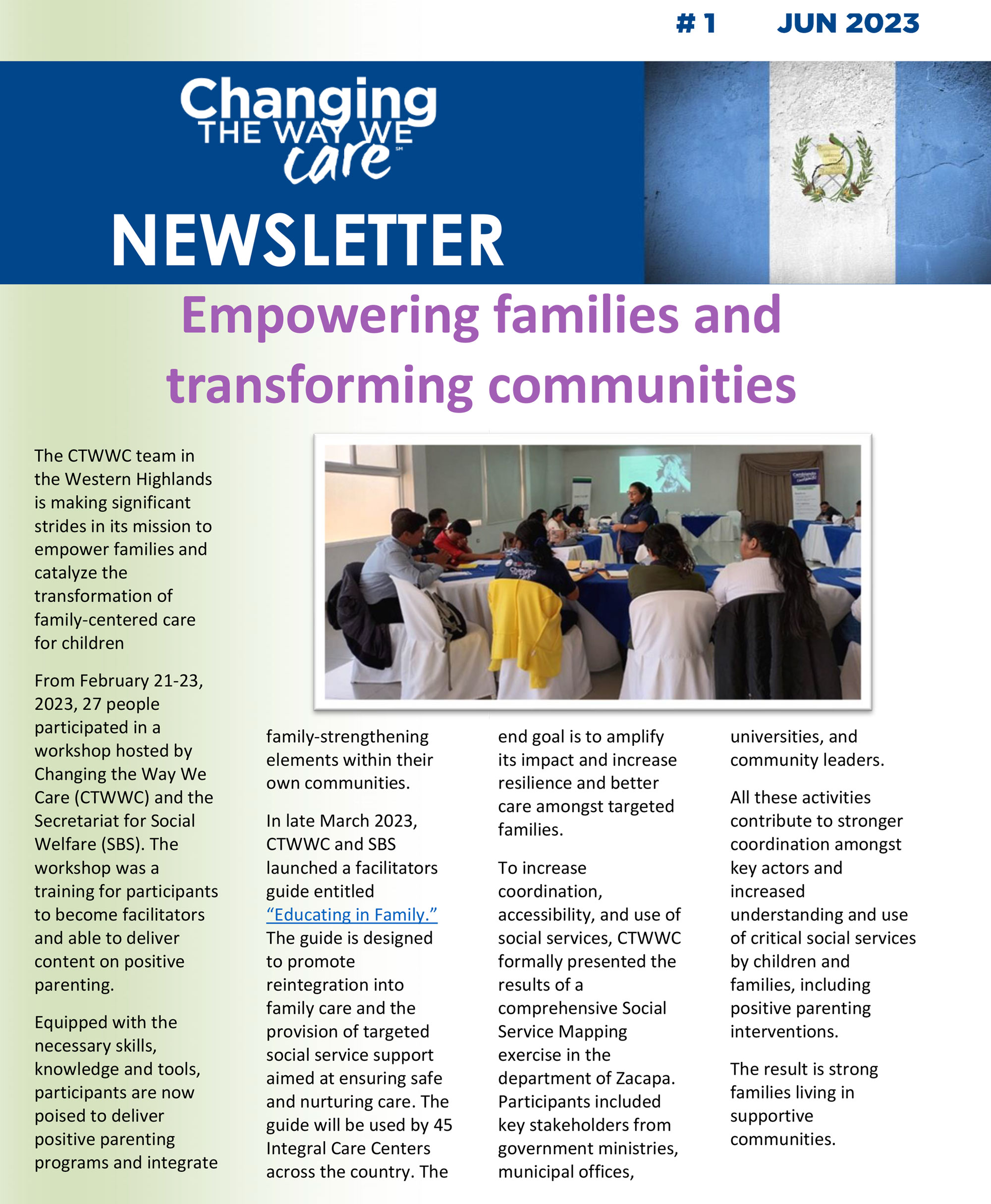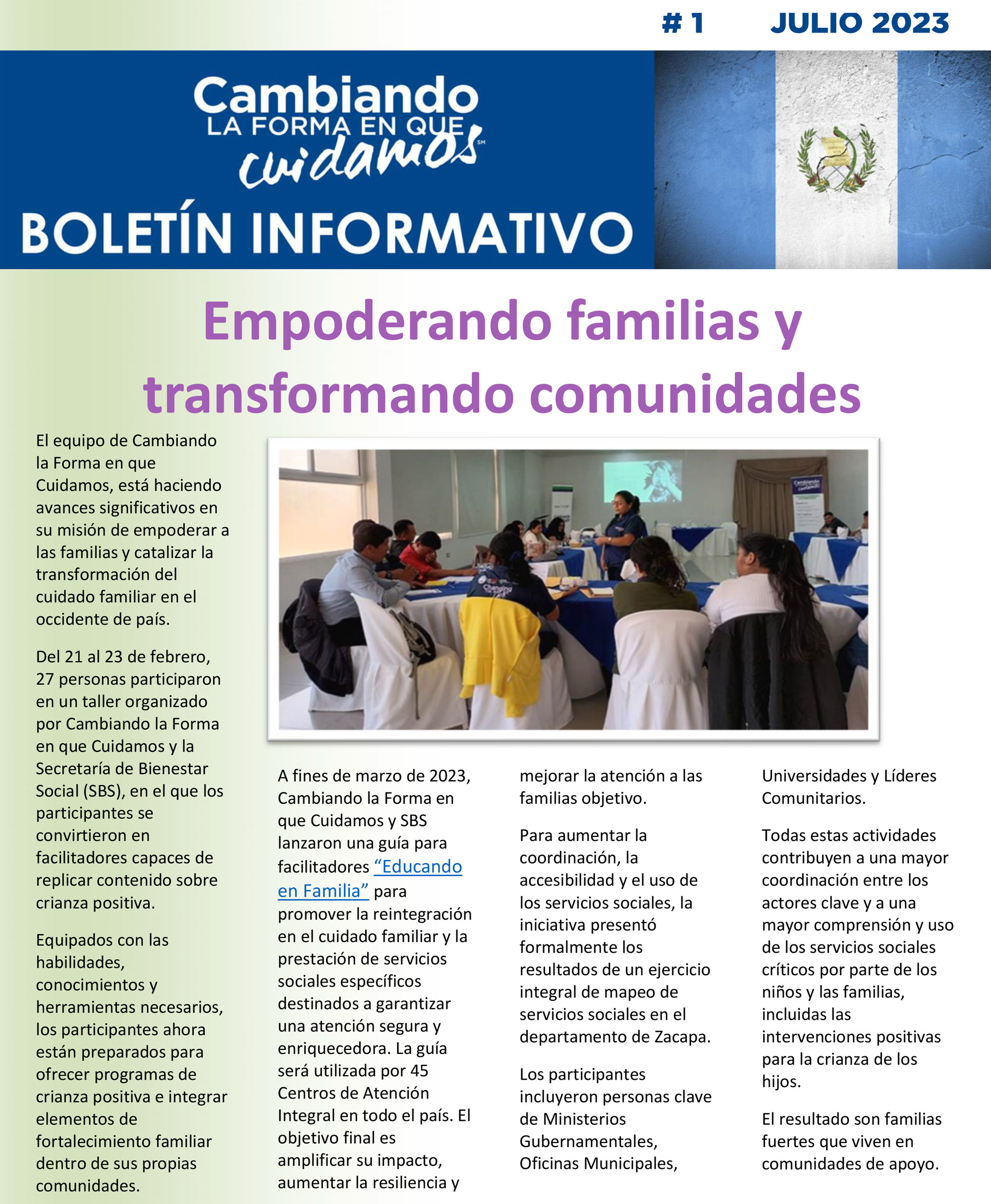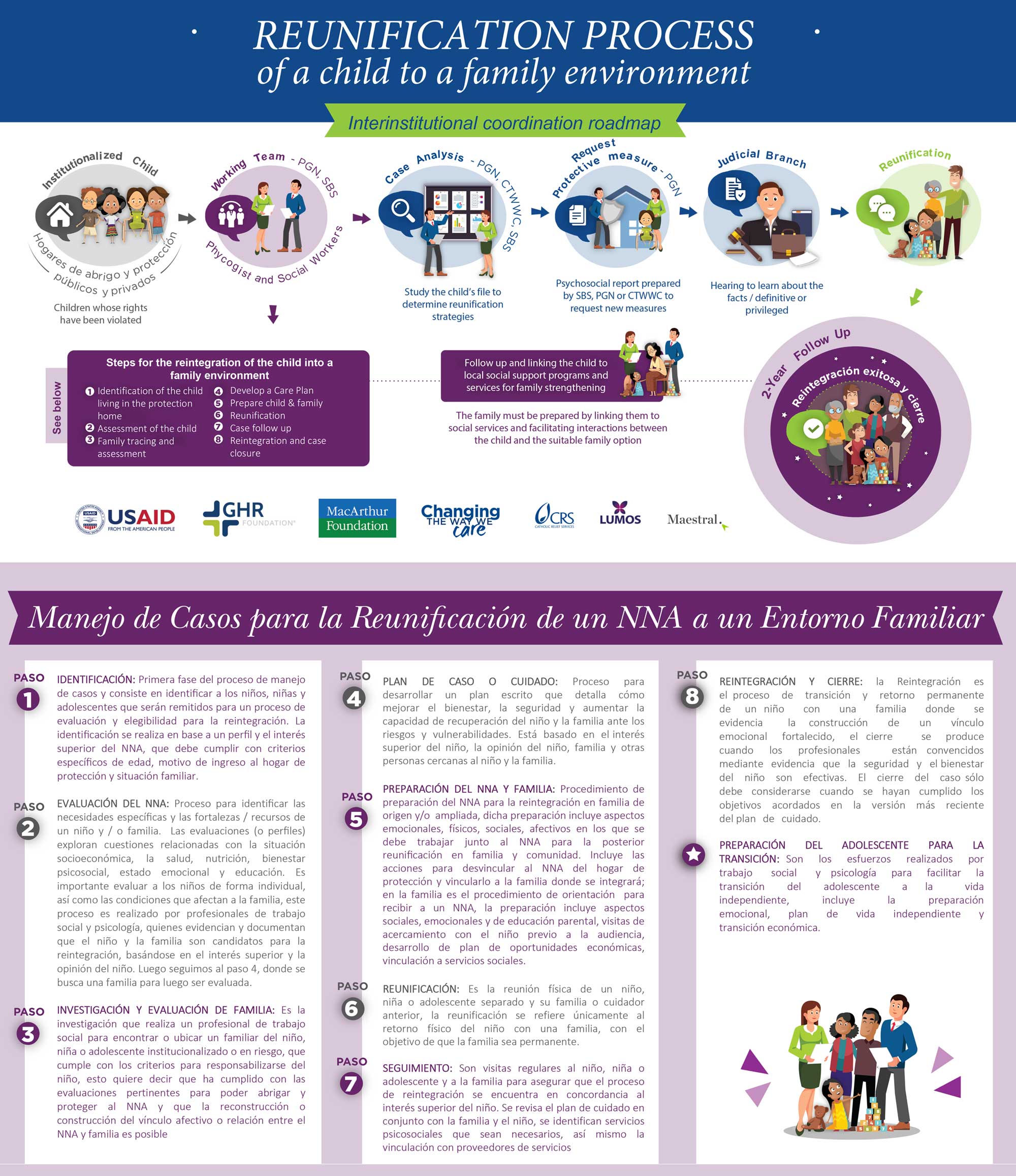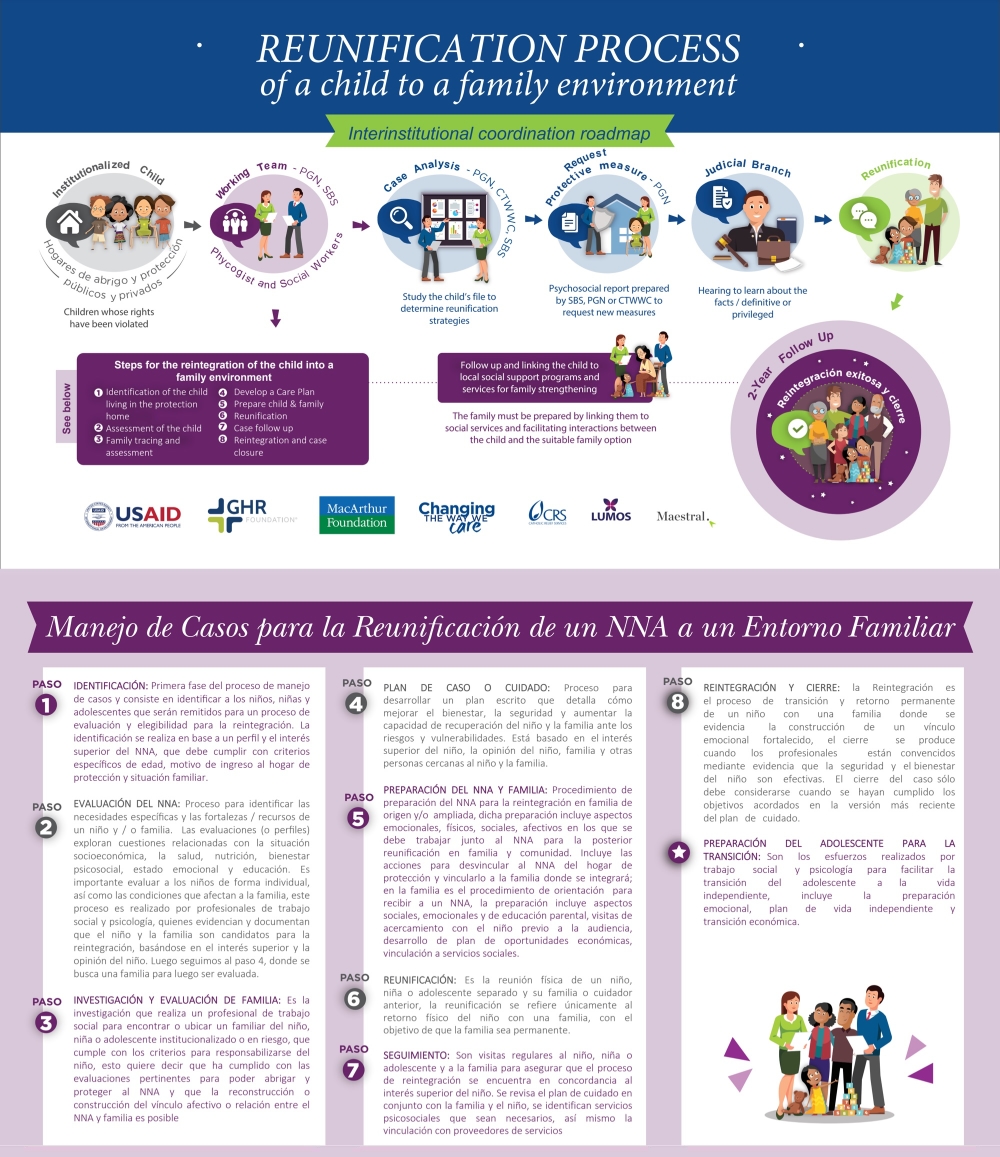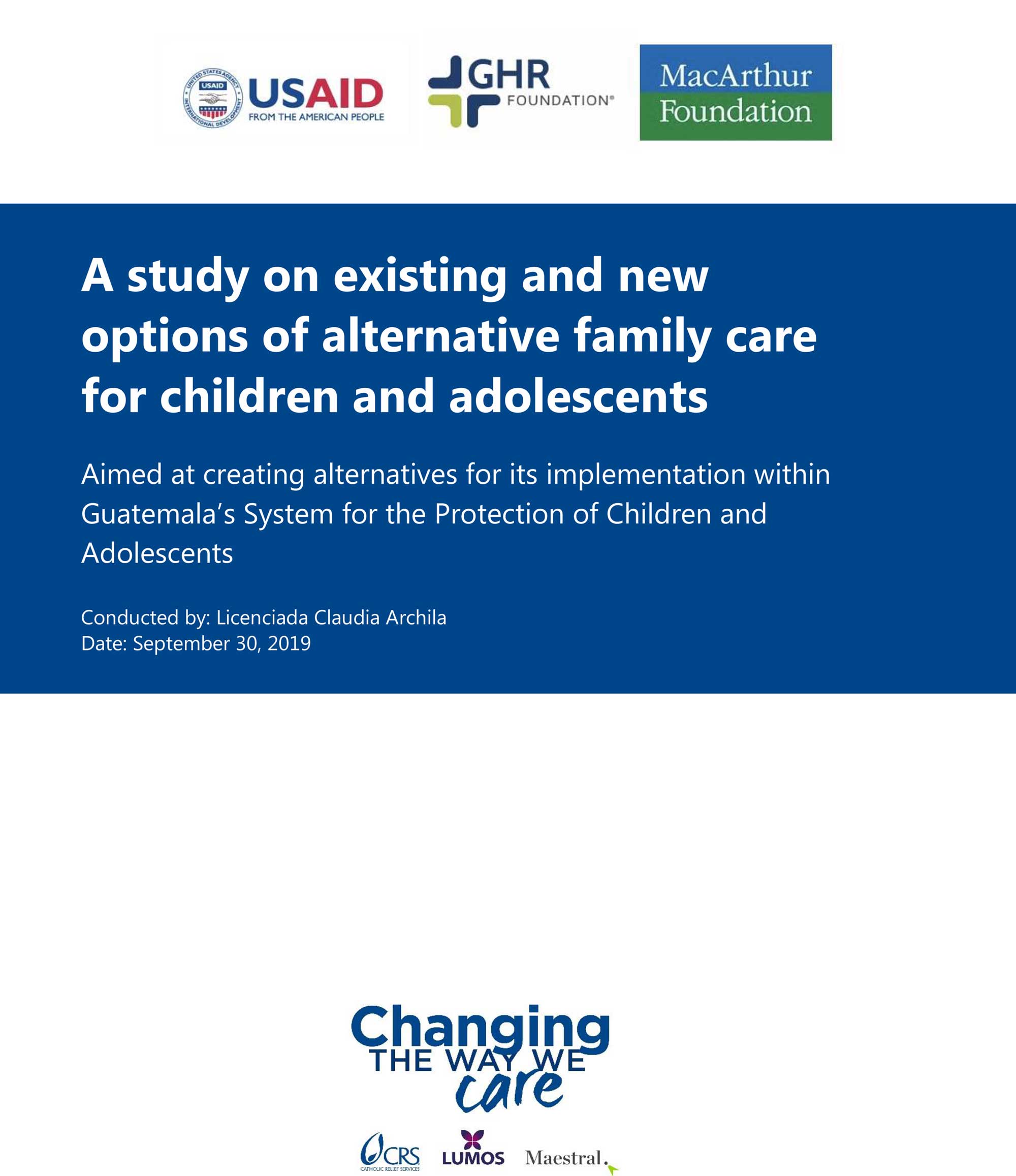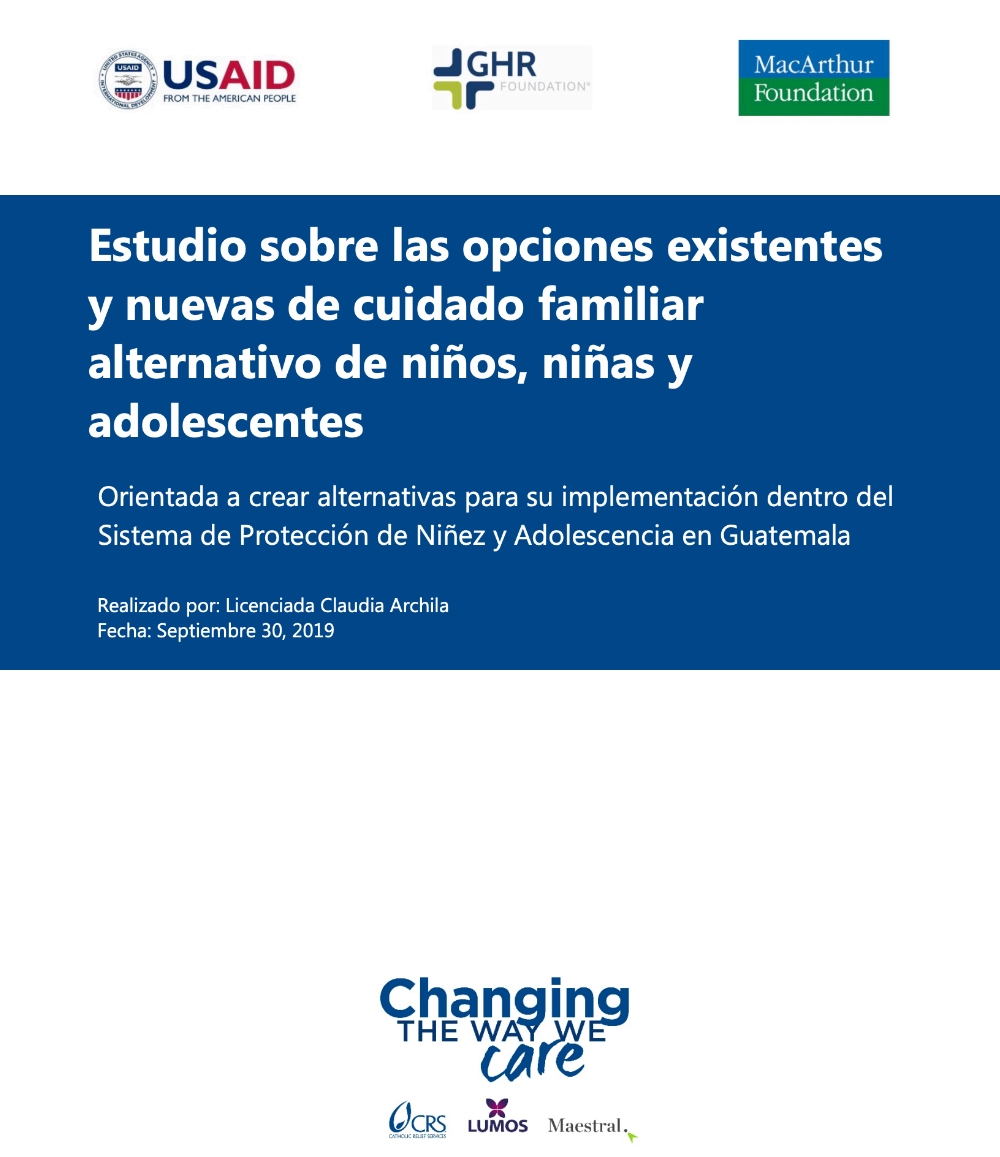CTWWC Guatemala helps children currently living in residential care facilities (sometimes called “orphanages” and referred to as “protection homes” in Guatemala). We take a comprehensive approach to care reform by strengthening families and communities in their ability to provide a safe and nurturing home for their children. In Guatemala, this involves:
- Strengthening families and preventing children from separating from their families.
- Expanding family-based alternative care such as kinship care and temporary foster care.
- Planned reintegration of children from residential care into family-based care.
- Working closely with the four government bodies in Guatemala mandated with child protection and care, as well as with local governments, civil society, including faith-based institutions and organizations.
CTWWC Guatemala works at the national level to build on the inherent strengths of existing programs and services for children and families. We connect families with community support and existing social services and ensure children are cared for in safe and nurturing families. This includes:
- Training government staff charged with child protection and care.
- Conducting research to inform national care reform policy and practice.
- Analyzing state budgets and conducting cost comparisons to show the fiscal benefits of investing in family-based care.
- Working closely with government and nongovernment partners to prevent unnecessary family separation and promote support services for families.
- Working with residential care institutions on their transition process to alternative care services such as kindship care and foster care.
- Creating alliances and interinstitutional coordination between government bodies and other sectors that are part of the protection system.
Awareness and advocacy efforts emphasize the role that healthy, safe, and nurturing families play in the development of a child and in creating supportive communities.
CTWWC Guatemala is now looking to engage other sectors to strengthen its efforts, including educational institutions and the private sector. Also, we are participating and engaging with networks and institutions from different countries in the region, sharing knowledge and building evidence.
DEMONSTRATION AREA
CTWWC Guatemala models the strategies listed above in Zacapa, a municipality in the eastern region of Guatemala. Our work in Zacapa includes close coordination with a public residential care facility where CTWWC is working with government counterparts such as the Social Welfare Secretariat and the court to reintegrate children into families.
Through a newly established Municipal Office for Children and Adolescents (OMNA), CTWWC Guatemala works to identify families at risk of separation before it happens and refer children and families to appropriate support services.
The work in Zacapa demonstrates the success of planned and thoughtful reintegration using best practices delivered by well-trained case managers supporting stable and nurturing caregivers. Furthermore, CTWWC Guatemala and our partners demonstrate the important role that communities play in supporting children and families. The work encourages changes in attitudes and practices that value the family and promote mutual support.
As of March 2021, CTWWC Guatemala reunified 56 children from residential care in Guatemala and served 185 families at risk of separation in collaboration with the Municipal Office for Children and Adolescents of Zacapa.
*Because there is a territorial dispute that is under deliberation by the International Court of Justice, the map should be used with that dotted line and indicating that there is territorial dispute for the Belize territory. to The designations employed and the presentation of the material on this map do not imply the expression of any opinion whatsoever on the part of CTWWC partners concerning the legal status of any country, territory, city or area or of its authorities, or concerning the delimitation of its frontiers or boundaries.

